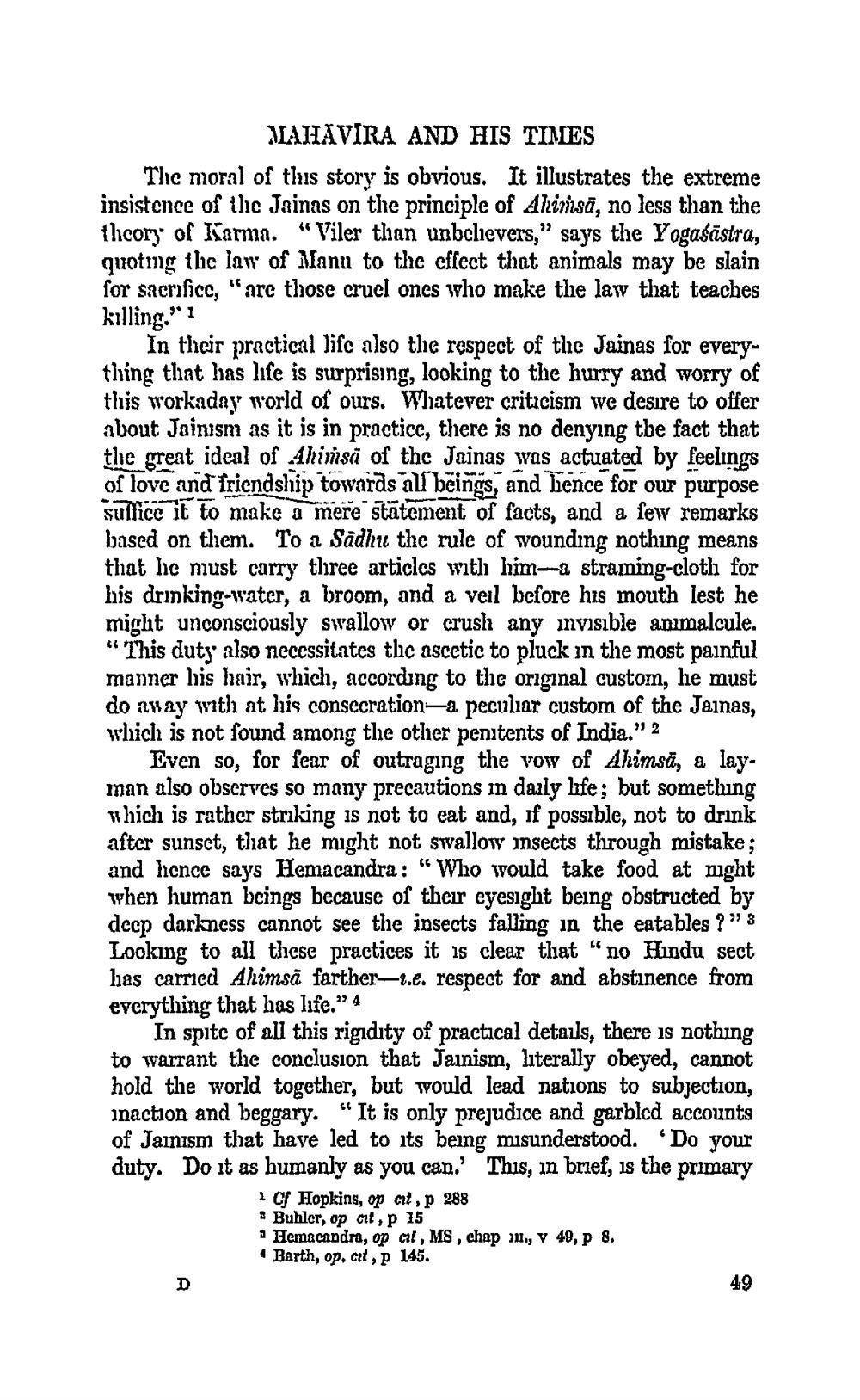________________ MAHAVIRA AND HIS TIMES The moral of thus story is obvious. It illustrates the extreme insistence of the Jainas on the principle of Alinsa, no less than the thcory of Karma. "Viler than unbelievers," says the Yogasastra, quoting tlic law of Manu to the effect that animals may be slain for sacrificc, "are those cruel ones who make the law that teaches killing.'* 1 In their practical life also the respect of thic Jainas for everything that has life is surprising, looking to the hurry and worry of this workaday world of ours. Whatever criticism we desire to offer about Jainism as it is in practice, there is no denying the fact that the great ideal of Ahinsa of the Jainas was actuated by feelings of love and friendship towards all beings, and hence for our purpose sullice it to make a mere statement of facts, and a few remarks based on them. To a Sadhu the rule of wounding nothing means that he must carry three articles with him a straining-cloth for his drinking-water, a broom, and a veil before his mouth lest he might unconsciously swallow or crush any invisible animalcule. "This duty also necessitates the ascetic to pluck in the most painful manner his hair, which, according to the original custom, he must do away with at his consecration--a peculiar custom of the Jainas, which is not found among the other penitents of India." 2 Even so, for fear of outraging the vow of Ahimsa, a layman also observes so many precautions in daily life; but something which is rather striking is not to eat and, if possible, not to drink after sunset, that he might not swallow insects through mistake; and hence says Hemacandra: "Who would take food at night when human beings because of their eyesight being obstructed by deep darkness cannot see the insects falling in the eatables ? " 3 Looking to all these practices it is clear that "no Hindu sect has carried Ahimsa farther--.e. respect for and abstinence from everything that has life." 4 In spite of all this rigidity of practical details, there is nothing to warrant the conclusion that Jainism, literally obeyed, cannot hold the world together, but would lead nations to subjection, inaction and beggary. "It is only prejudice and garbled accounts of Jainism that have led to its being misunderstood. 'Do your duty. Do it as bumanly as you can. This, in bref, is the primary * Cf Hopkins, op at, p 288 * Buhler, op cit, p 15 * Hemacandro, op al, MS, chap 211., v 49, p 8. Barth, op.cit, p 145.




